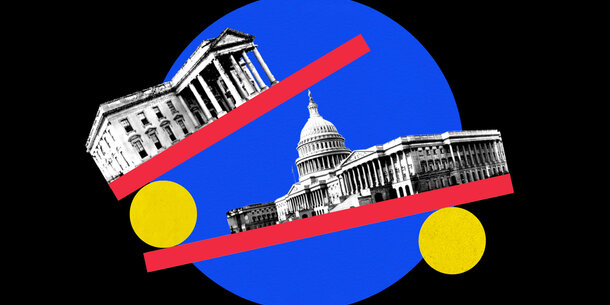Tuesday afternoon, a jury of his peers found former Minneapolis police officer Derek Chauvin guilty of the murder of George Floyd. The verdict, while welcome, is a reminder that police accountability should be the norm and not the exception that proves the rule of police impunity. Over the last several days, three more names have filled the nation’s news cycle when they were added to an ever-growing list of people whose encounters with law enforcement led to an excessive application of force.
Daunte Wright was pulled over in a Minneapolis suburb and was shot by a police officer who fired her gun instead of her taser, killing him just 11 miles from where George Floyd’s life was taken last Memorial Day. Adam Toledo, a 13-year-old seventh grader in Chicago, was killed in an alleyway following a foot chase by the single shot of a city police officer. Army 2nd Lt. Caron Nazario, still in his camouflage uniform, was pepper-sprayed, violently forced to the ground, and handcuffed after being stopped as a result of the apprehending officers’ error.
This last week hit a little too close to home for me. I know the exact panic that set in when Wright was pulled over for a minor vehicle infraction, and I know exactly how Caron Nazario felt when assuming that wearing the cloth of the nation would protect you from its excesses. As a Black man and retired military officer, I have often wondered over the last few days how much of the latter identity saved me from the discriminatory treatment too often experienced as the former.
Undergirding the conversation about law enforcement practices in the United States is the role that race has long played in who is subjected to punitive excesses. Any attempt at reforming our criminal justice system must not only account for abuses of power — whether by “bad apples” or bad institutional practices — but it must also squarely face the disparate impact it has on people of color and those at the lower end of the socioeconomic spectrum. I write about this in my new essay for the Brennan Center’s series on punitive excess.
We cannot realize justice in America unless we are willing to confront racism. There is no way around it. There is no shortcut. It is not happenstance that the three names that have recently captured the nation’s attention all belong to people of color. And while abuses of state power affect all of our nation’s people — no matter their race, ethnicity, or class — a system’s flaws are more readily apparent when examining the experiences of marginalized communities.
The nation confronted the racial injustice in policing practices last summer following the murder of George Floyd, when millions of Americans in every state in the Union engaged in multiracial displays of solidarity by protesting police brutality and structural racism. Since those rays of hope filled the horizon, the country has not lived up to its promise. And less than a year later, we are living anew the damage excessive force can do to our democracy and our society.
The fight for justice and racial equality continues.



